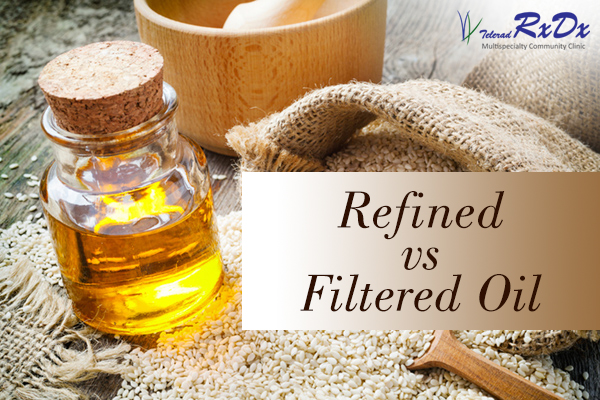
When it comes to heart health, the first food group that comes to mind is OILS. It is the most common cooking medium which provides energy to body, taste to food along with fat soluble vitamins and essential fatty acids .Now the question of how much should be used needs a more customized guidelines rather than a generalized one but here lets discuss on which type of oil should be used.
The two types of oils based on processing involved are: Filtered and Refined oils.
Filtered oils or Kachi ghani as we call in India are the ones which are filtered through strainers to eliminate the solid particles & other impurities from the seed .They appear to be more dark and cloudy and also the smell is more prominent.
Refined oils on the other hand are treated with chemicals to get rid of impurities & odor to give a clear appearance.
The general rule everyone must apply is – “Less the processing, more is the nutrition”. So definitely the filtered oils are better than refined ones. Also filtered oils are produced at a lower temperature which retain most of the nutrition & the fatty acid bonds doesn’t become toxic, which is not true with refined oils. To make filtered oils the best grade of seeds are used which is not again true for refined ones. Yes, filtered oils do have a strong aroma which makes them unwanted for deep frying as they can overpower the taste of food.
So I would advise that if it suites your taste buds it’s better to consume filtered oils on a regular basis as they are healthier and refined oils to be consumed for certain types of cooking method.
Ratika Vinchurkar is a Clinical and Lifestyle dietitian, currently practicing at RxDx. Experienced in treating nutritionally all kinds of degenerative and lifestyle disorders like Diabetes, Hypertension, Thyroid Disorders, Cardiovascular disorders, renal disorders and other chronic diseases; Her practical approach towards the lifestyle diet modification rather than just prescribing strict regimens endear her to her patients. She holds a master’s degree in Food and Nutrition and favors the theory of “you are what you eat”.




